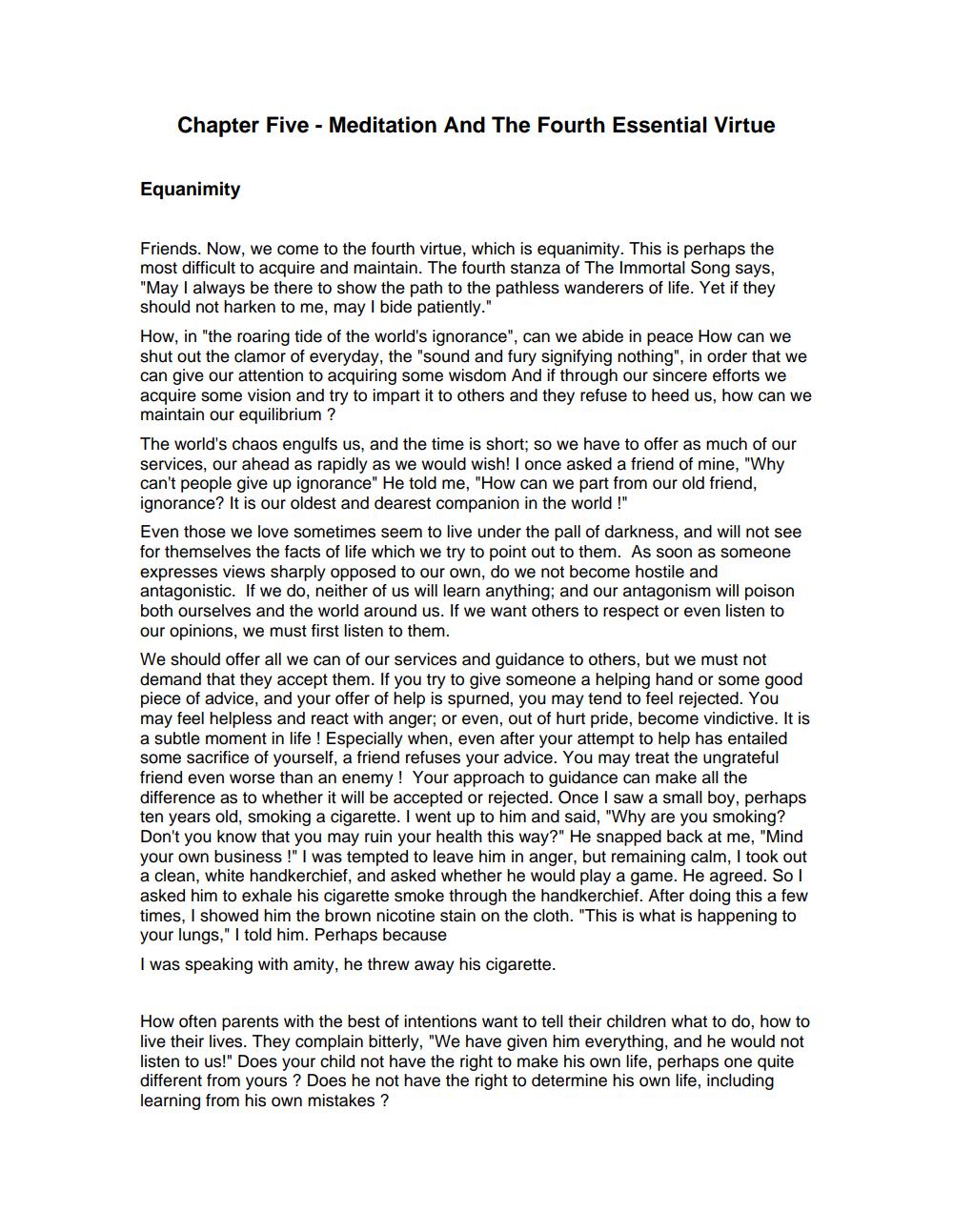________________
Chapter Five - Meditation And The Fourth Essential Virtue
Equanimity
Friends. Now, we come to the fourth virtue, which is equanimity. This is perhaps the most difficult to acquire and maintain. The fourth stanza of The Immortal Song says, "May I always be there to show the path to the pathless wanderers of life. Yet if they should not harken to me, may I bide patiently."
How, in "the roaring tide of the world's ignorance", can we abide in peace How can we shut out the clamor of everyday, the "sound and fury signifying nothing", in order that we can give our attention to acquiring some wisdom And if through our sincere efforts we acquire some vision and try to impart it to others and they refuse to heed us, how can we maintain our equilibrium?
The world's chaos engulfs us, and the time is short; so we have to offer as much of our services, our ahead as rapidly as we would wish! I once asked a friend of mine, "Why can't people give up ignorance" He told me, "How can we part from our old friend, ignorance? It is our oldest and dearest companion in the world!"
Even those we love sometimes seem to live under the pall of darkness, and will not see for themselves the facts of life which we try to point out to them. As soon as someone expresses views sharply opposed to our own, do we not become hostile and antagonistic. If we do, neither of us will learn anything; and our antagonism will poison both ourselves and the world around us. If we want others to respect or even listen to our opinions, we must first listen to them.
We should offer all we can of our services and guidance to others, but we must not demand that they accept them. If you try to give someone a helping hand or some good piece of advice, and your offer of help is spurned, you may tend to feel rejected. You may feel helpless and react with anger; or even, out of hurt pride, become vindictive. It is a subtle moment in life! Especially when, even after your attempt to help has entailed some sacrifice of yourself, a friend refuses your advice. You may treat the ungrateful friend even worse than an enemy! Your approach to guidance can make all the difference as to whether it will be accepted or rejected. Once I saw a small boy, perhaps ten years old, smoking a cigarette. I went up to him and said, "Why are you smoking? Don't you know that you may ruin your health this way?" He snapped back at me, "Mind your own business !" I was tempted to leave him in anger, but remaining calm, I took out a clean, white handkerchief, and asked whether he would play a game. He agreed. So I asked him to exhale his cigarette smoke through the handkerchief. After doing this a few times, I showed him the brown nicotine stain on the cloth. "This is what is happening to your lungs," I told him. Perhaps because
I was speaking with amity, he threw away his cigarette.
How often parents with the best of intentions want to tell their children what to do, how to live their lives. They complain bitterly, "We have given him everything, and he would not listen to us!" Does your child not have the right to make his own life, perhaps one quite different from yours? Does he not have the right to determine his own life, including learning from his own mistakes?




